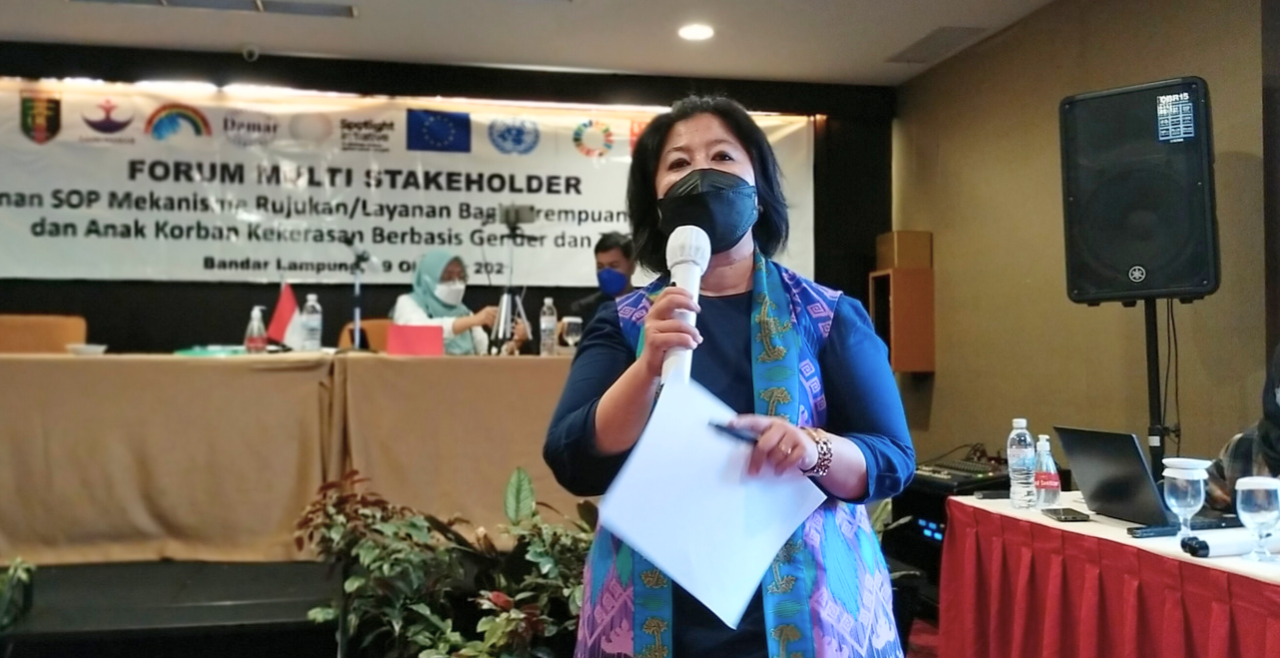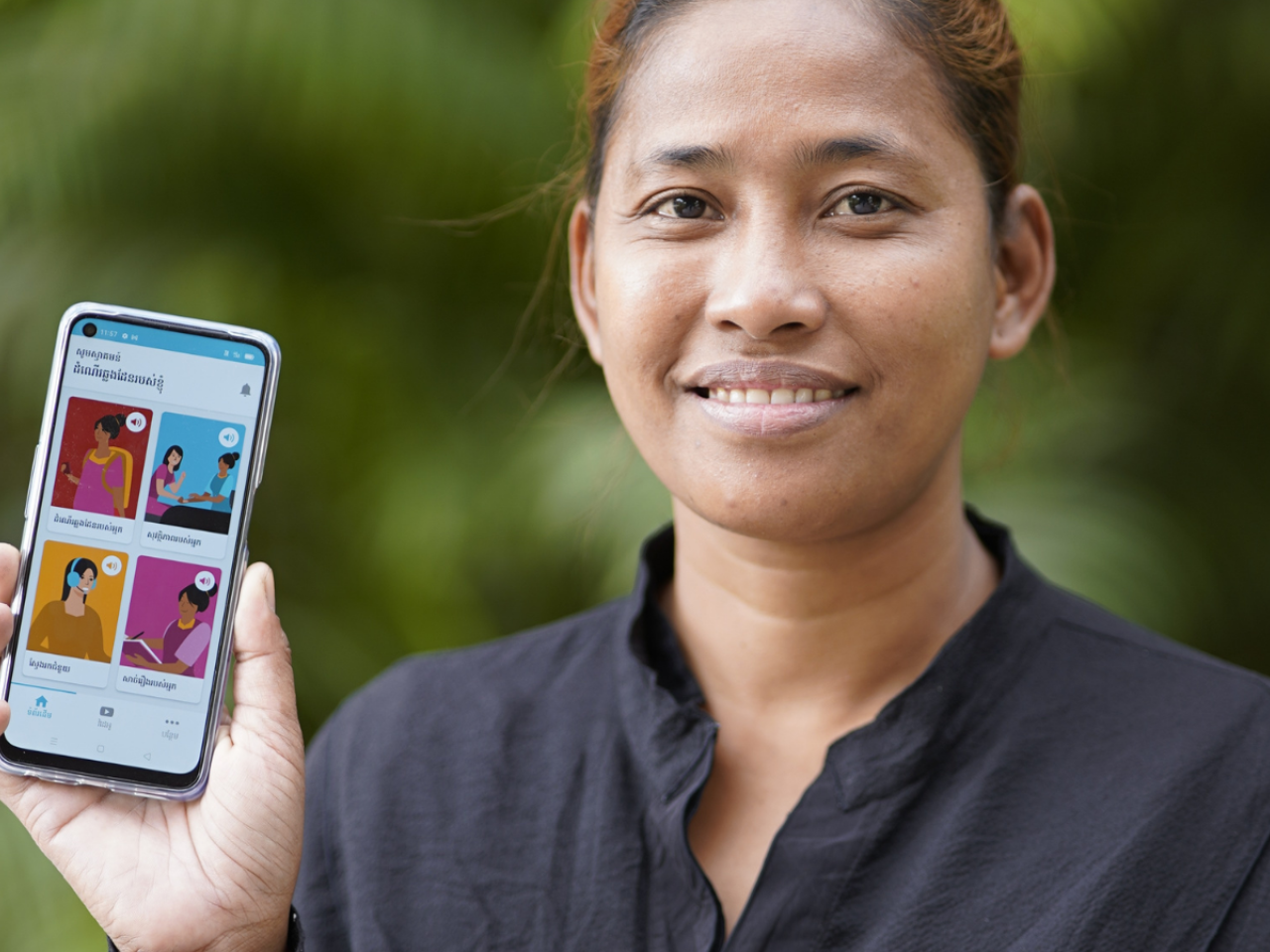In Indonesia, improving service coordination to reach migrant women workers experiencing violence

LAMPUNG, Indonesia – Suli dreamed of having a happy marriage and supporting her family by working abroad. However, things didn't turn out as planned.
She married her husband before leaving Indonesia for a job in Hong Kong. When she arrived in Hong Kong, she discovered that she was pregnant.
While on paper, the Hong Kong government allows all working women to enjoy their employment rights which includes maternity leave, in practice, domestic workers tend to be dismissed by their employers as soon as they get pregnant.
Suli returned to Indonesia to discover her husband had run away, leaving her alone with a baby and struggling to make ends meet. When a journalist heard her story, Suli was referred to Lembaga Advokasi Anak (LAdA) DAMAR Women Crisis Centre for help.
“I was with my two-month-old baby and had nowhere to go... I was immediately picked up and safely transported to the shelter.” - Suli, migrant worker
A safe shelter
“I was with my two-month-old baby and had nowhere to go. I contacted the DAMAR hotline seeking help,” Suli shares. “They promptly responded to my call and referred me to the Protection House of the trauma centre of Lampung Province Social Service. I was immediately picked up and safely transported to the shelter.”
While Suli and her baby currently have a safe place to stay, they are still waiting for health services, social protection, counselling and legal assistance – highlighting the need for coordinated assistance to vulnerable women and girls.
“We have been providing services separately, especially when we deal with vulnerable groups, such as undocumented migrant workers who are deported and need health care,” says Waydinsyah, from the Indonesian Migrant Worker Protection Agency Lampung Province.
According to the Indonesian Migrant Worker Protection Agency, almost 172,500 Lampung residents have worked abroad in the past five years, the majority of whom work in the domestic sector. This makes Lampung Province the fifth largest origin of migrant workers in Indonesia.
Women migrant workers are susceptible to gender-based violence at every stage of migration, including labour rights violations and economic abuse. The forms, locations, and perpetrators of gender-based violence vary greatly, which can mean the experiences of women migrant workers are often overlooked.
Suli’s experience emphasizes the urgent need for a unified referral system between government- and community-based service providers, so that services can be provided quickly and efficiently.
“This programme supports and develops what is already there, so that in the future, its sustainability will be better maintained.” - LAdA DAMAR Executive Director Sely Fitriani
Closing the gaps
Spotlight Initiative supports collaboration between the LAdA DAMAR Association, UN Women and ILO through its Safe and Fair Programme, which is working to improve services for women migrant workers who are survivors of gender-based violence and trafficking in the Lampung Province.
The development of standard operational procedures (SOP) to coordinate services and referral systems for women and children experiencing violence is one such effort.
Lampung Province Trafficking in Persons (TIP) Task Force is also involved in the development of SOP to improve their skills and ability to deliver a gender-responsive and survivor-centred service.
Under the leadership and coordination of the local government’s unit for women's empowerment and child protection services, members of the TIP Task Force are collectively developing SOP through joint consultations and coordination meetings supported by the Safe and Fair programme.
“In developing the SOP of coordinated services and referral mechanism, our strategy specifically involved human trafficking task forces of the Lampung Province. The task force has been officially established and approved by the Governor,” says LAdA DAMAR Executive Director Sely Fitriani.
“This programme supports and develops what is already owned by the subnational government, so that in the future, its sustainability will be better maintained,” she adds.
Written by Yuni Asriyanti with contribution of Jeanne Pauline Alvarez

